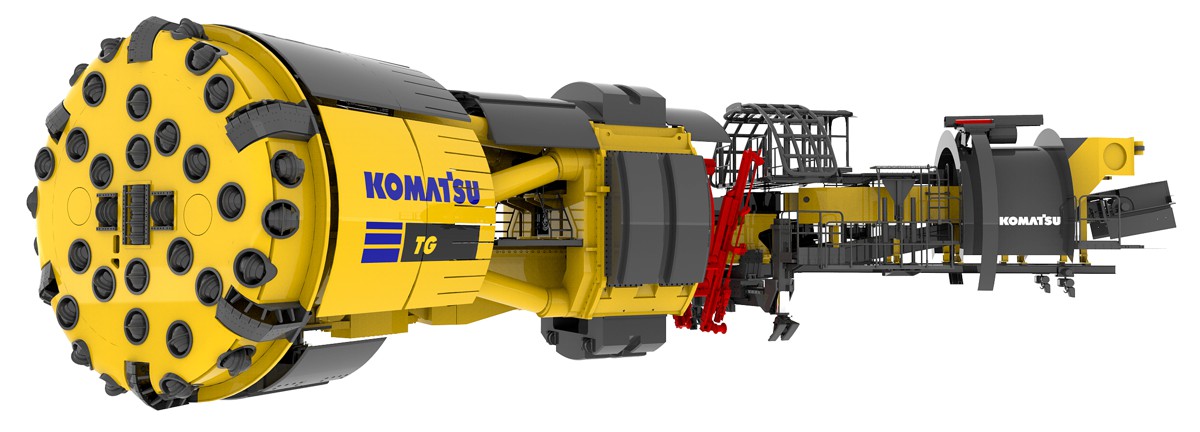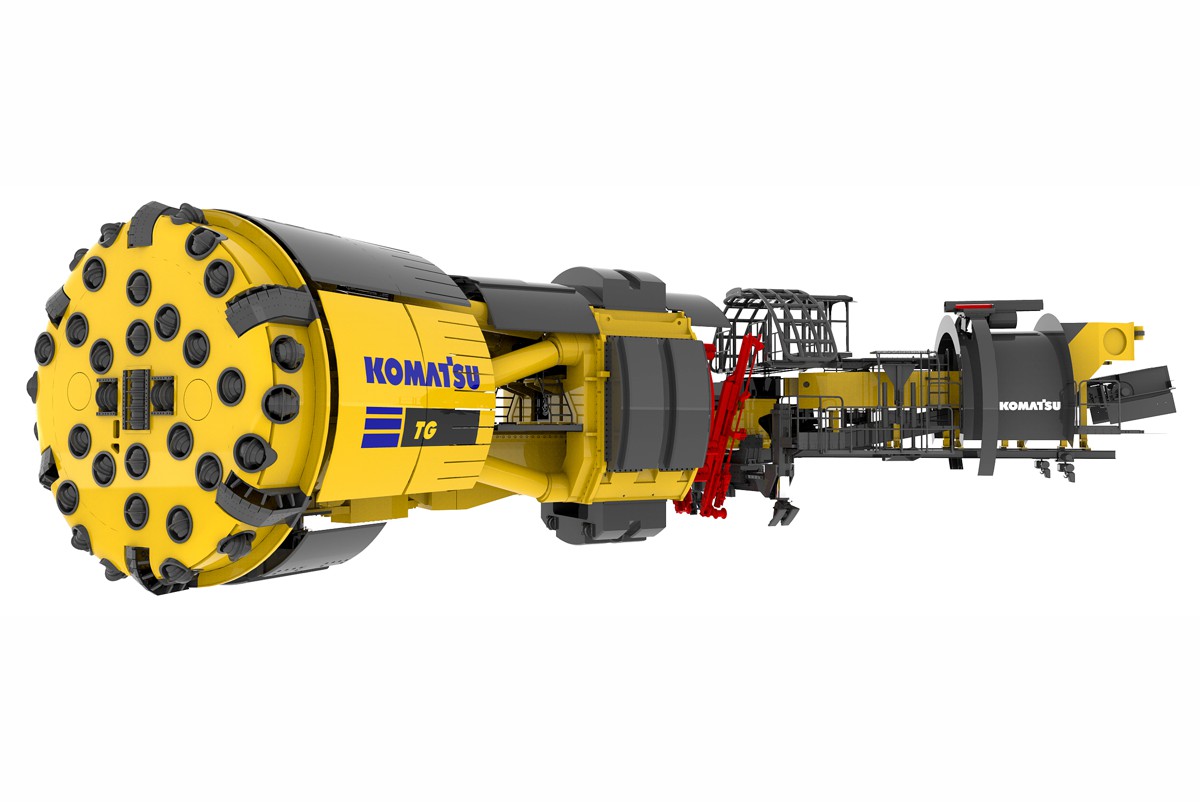Codelco to trial new Komatsu Mining Tunnel Boring Machine
Komatsu Ltd., through its subsidiary, Komatsu Cummins Chile Ltda., has agreed with Codelco, a major state-owned mining company in Chile, to collaborate on trailing a new tunnel excavation method using Komatsu’s newly developed Mining Tunnel Boring Machine (TBM) starting in 2024 at Codelco’s Chuquicamata Mine in Chile. Through trial use of the new machine, Komatsu and Codelco aim to speed up the potential introduction of this innovative technology.
Demand for underground mining equipment is expected to increase along with global demand for mineral resources that require increasingly deeper mining operations.
Komatsu developed the first TBM for rock excavation in 1963 for use in civil engineering in Japan. Since that time, the company has introduced a cumulative total of more than 2,300 TBM (including its Micro Tunnelling Machine) to the market. Based on Komatsu’s experience in excavation, the Mining TBM is equipped with new technologies that enable adaptability to small curves, reversing, and passing intersections in hard rock tunnel excavation. Previously, use of TBM has generally been limited to excavating nearly straight tunnels. This new technology improves the flexibility of the equipment and enables excavation of tunnels according to the more unique designs of each mine.
The Mining TBM works by continuously performing a series of processes, such as excavating rock with disc cutters and discharging the chipped rock backwards with belt conveyors, while fortifying the excavated tunnel wall. Excavation with disc cutters improves tunnel strength and stability by creating a circular tunnel shape with smooth walls with less damage to the excavated tunnel (compared to drilling and blasting method).
To support customers’ needs for increasingly sustainable ways of mining, the new machine runs off electricity, does not require the use of blasting and performs a series of tunnel excavation processes with a single machine, reducing the number of vehicles required overall. The result is a new excavation option that reduces the creation of greenhouse gases and particulate matter emissions for an improved underground environment that requires less ventilation than other methods. At the same time, it significantly increases the productivity of personnel associated with
tunnel excavation work compared to conventional methods.
In response to climate change and the need for solutions for environmental issues, Komatsu has been focusing on the development of equipment for the future of underground hard rock mining under the slogan of “No Blasting”, “No Batch”, “No Diesel.” The Mining TBM and the new method embody this forward-looking approach and seek to help customers improve safety, environmental friendliness, and productivity (shorter tunnel construction period and lower tunnel construction costs) at underground mines, and will also help them achieve a revolution in their mining operations.
Per the company’s ongoing mid-term management plan “DANTOTSU Value – Together, to ‘The Next’ for sustainable growth”, Komatsu is working to expand offerings for underground hard rock mining, creating new value for customers with the development of new equipment, processes and technologies that will help operations step forward to the next stage for the workplace of the future and provide a more sustainable future for the next generation.






























